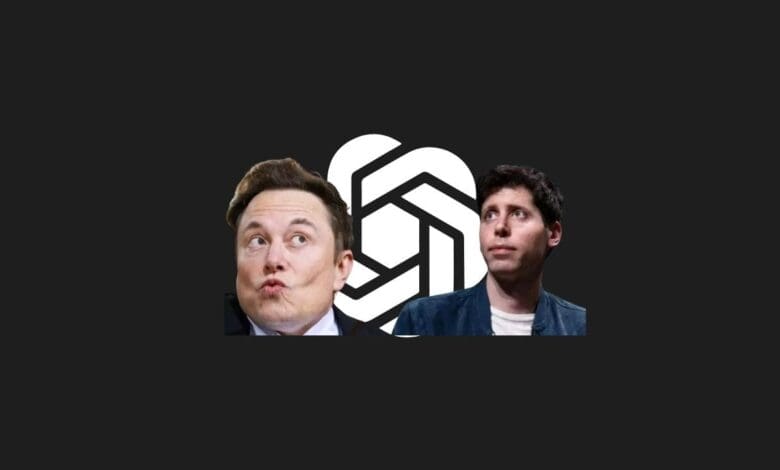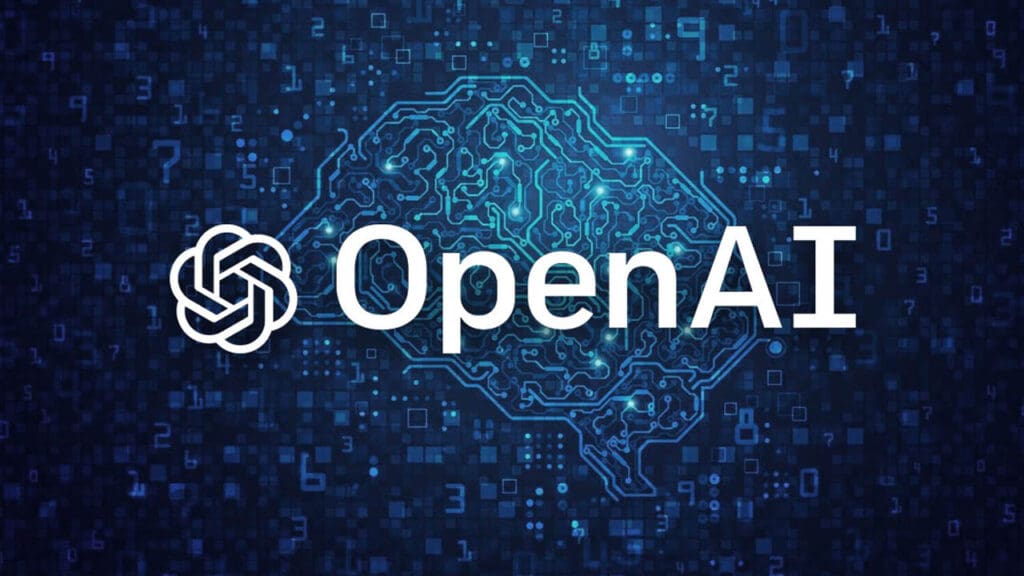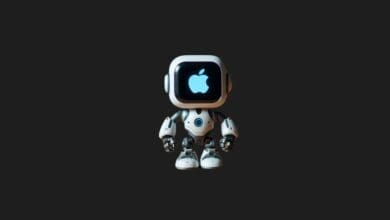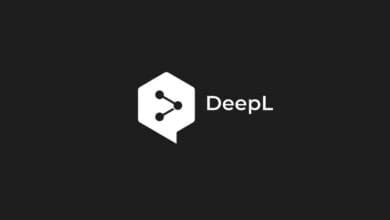
OpenAI vs. Elon Musk: Explosive Exposé of Musk’s Emails!
OpenAI recently made a series of stern statements regarding Elon Musk, who has taken legal action against the company. These statements were part of a broader disclosure detailing the evolution of the relationship between the two parties, including the sharing of email correspondences.
This development comes on the heels of a report we shared a few days ago about a brewing conflict between OpenAI and the billionaire entrepreneur. Musk had lodged a legal complaint against OpenAI and its CEO, Sam Altman, accusing them of deviating from their foundational goals, which he claimed was a breach of their agreement.
In a significant turn of events, OpenAI’s management broke their silence with a detailed statement refuting Musk’s allegations. This statement elaborated on OpenAI’s achievements and its reasons for placing an increased focus on financial matters.
Additionally, it included the exchange of emails between Elon Musk and OpenAI, highlighting the nature of their discussions. Elon Musk has since responded to this statement. Let’s delve deeper into this matter together.
Things changed when OpenAI realized how costly artificial general intelligence was

OpenAI disclosed that their initial engagement with Elon Musk occurred towards the end of 2015. The organization’s co-founders, Greg Brockman and Sam Altman, were in the process of securing $100 million in initial funding.
However, Musk viewed this amount as insufficient, suggesting that the team should aim for a budget of $1 billion, or at least assert as much. OpenAI’s statement revealed that Musk contributed approximately $45 million in the initial funding round.
By 2017, the non-profit OpenAI recognized a significant hurdle; developing general artificial intelligence (AI) was unattainable with their existing budget. The realization of the immense computing power required led the team to acknowledge the necessity for billions of dollars in funding—surpassing even Musk’s initial predictions. This acknowledgment underscored the scale of investment needed to pioneer in the field of general AI, according to OpenAI’s statement.
Elon Musk has known about OpenAI’s for-profit imperatives ever since

In a pivotal moment, the OpenAI team approached Elon Musk in 2017 with the proposal to transition into a for-profit entity. Musk was open to the idea but presented OpenAI with two conditions: either merge with Tesla or appoint him as the head of the organization.
However, OpenAI found these options unfeasible, citing the concern that the organization’s leadership should not be centralized under a single individual. During these discussions, it was also noted that Elon Musk ceased his financial contributions to OpenAI. This decision underscored the complexities and challenges in aligning the visions and governance structures between Musk and OpenAI.
“We are expanding our mission with artificial intelligence tools that are accessible to everyone”

OpenAI acknowledges its for-profit status but emphasizes its commitment to conscious and ethical development within the AI field. In this vein, they highlight their support for open-source projects and the global usage of their freely available tools.
As illustrative examples, OpenAI mentions that Albania is utilizing artificial intelligence to align with European Union standards. Additionally, a company named Digital Green has reportedly leveraged OpenAI’s services to make agricultural extension services 100 times more cost-effective, thereby boosting the earnings of farmers in Kenya and India.
Furthermore, OpenAI addresses the topic of open-source AI in relation to Elon Musk’s latest projects, indicating a nuanced approach to accessibility. Ilya Sutskever, in an email exchange with Musk, suggested that “As we get closer to developing general artificial intelligence, it becomes prudent to start being less open.” To this, Elon Musk simply responded with “Yes.” This exchange underscores a strategic shift towards more guarded development practices as OpenAI progresses towards significant AI milestones.
Let’s move on to the e-mails between the parties:

Part of Elon Musk’s first email to Greg Brockman (November 22, 2015)
In order to avoid appearing inferior compared to the substantial investments by giants like Google or Facebook, it’s imperative that we project a more formidable financial backing. I believe we should announce our initiation with a funding commitment of $1 billion. This amount is realistic, and I am prepared to cover any portion that is not funded by others.
Email to Elon Musk explaining why OpenAI is for-profit (January 31, 2018 – the sender of the email was kept confidential)
Operating at the forefront of artificial intelligence is undeniably costly. For instance, Google doesn’t just have DeepMind; it also boasts entities like Google Brain, Research, and Cloud, in addition to technologies such as TensorFlow and TPUs. Google also represents about a third of all AI research and even hosts its own AI conferences.
Achieving artificial general intelligence is a monumental challenge. Historical trends suggest that advancements in AI are predominantly fueled by improvements in computing, data, and infrastructure. The core algorithms used today have largely remained the same since the ’90s. Furthermore, while any algorithmic breakthrough can quickly be applied and integrated into a project as soon as it’s published, such advancements alone are insufficient without the necessary scale, making them a daunting prospect.
From my perspective, OpenAI currently seems to be merely expending funds without attaining a scale that could viably challenge Google. Continuously working without being able to compete effectively might inadvertently benefit them, as they can easily replicate any progress and scale it up immediately.
Transitioning to a for-profit model could potentially generate a more sustainable revenue stream over time and attract significant investment with the current team. However, developing a product from scratch diverts focus from AI research, is time-consuming, and it’s uncertain whether it could ever match Google’s scale. The most viable option, as previously mentioned, might be integrating OpenAI with Tesla. Collaborations with other major companies like Apple and Amazon might not be successful due to incompatible organizational cultures.
To draw a “rocket” analogy, Tesla has already constructed the “first stage” with the Model 3’s supply chain, onboard computer, and permanent internet connection. The “second stage,” enabling the rocket’s launch, could be a comprehensive solution powered by OpenAI’s large-scale neural network training. In 2-3 years, we could be selling a significant number of vehicles equipped with a fully autonomous driving solution. If executed effectively, this could substantially increase Tesla’s market capitalization, providing significant funds for AI research at scale.
I believe this is the only pathway with the potential to achieve sustainable capital at a scale comparable to Google’s within a decade.
Here’s how Elon Musk replies to this email (February 1, 2018)

Aligning with Tesla represents OpenAI’s sole opportunity to pose a challenge to Google. However, even with this strategy, the likelihood of becoming a significant counterbalance to Google is not nonexistent, but it remains very slim.
Elon Musk sends another email to Ilya Sutskever (December 26, 2018)
My evaluation of OpenAI’s chances to rival DeepMind/Google, without a significant shift in strategy and resources, stands at 0%—not even 1%. I wish the situation were different. Garnering a few hundred million dollars will not suffice. It requires either an annual expenditure of billions of dollars or it might as well be forgotten.
This conclusion is drawn from the statement released by OpenAI and all the emails that have been shared thus far.
Elon Musk’s response: “If you change your name, I will drop the case”
Elon Musk’s response to OpenAI’s extensive post, in which he made the statements above, was succinct: “Change your name.”
However, the renowned billionaire expanded on this with a tweet hours later, humorously suggesting, “Change your name to ClosedAI and I’ll drop the lawsuit.” The term “Open” in OpenAI’s name, which Musk proposes changing to “Closed,” reflects the opposite of its current implication. Although it’s clear such a change is unlikely to occur, Musk’s comment underscores his criticism that OpenAI has shifted away from serving the public interest to being solely profit-driven. More details on this legal battle can be found in our following content.
You may also like this content
- Microsoft Accelerates in Cybersecurity: AI Now Takes the Lead in Protection!
- DeepSeek Takes the World by Storm with Major Update to V3
- Google’s AI Tool Gemini Can Now “See” the World Using Your Phone Camera
Follow us on TWITTER (X) and be instantly informed about the latest developments…












